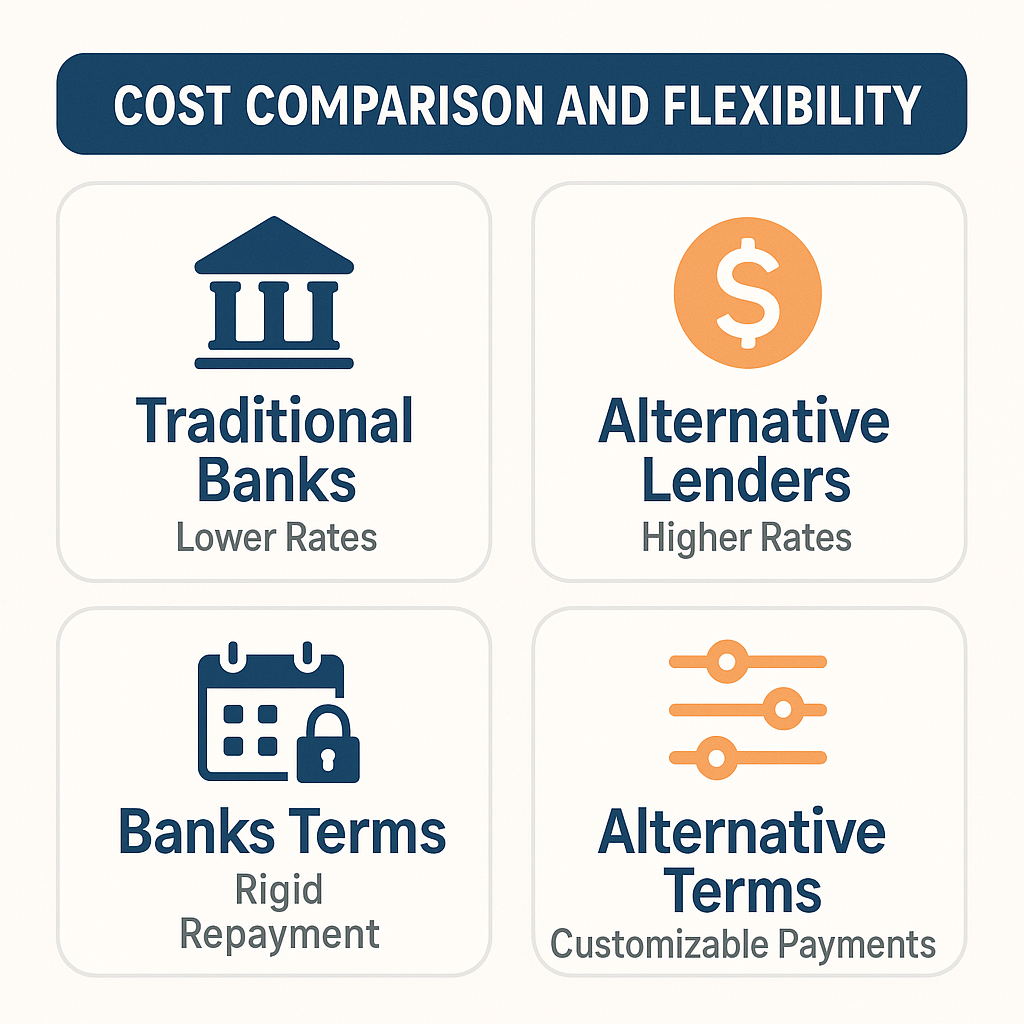When your business needs funding, choosing between lenders can feel overwhelming. Traditional banks and alternative lenders each offer distinct advantages and limitations. Understanding these differences helps you select the financing option that aligns with your business timeline, credit profile, and operational needs.
Key Differences in Approval Speed and Requirements
The approval speed and requirements between traditional banks and alternative lenders vary significantly, affecting how quickly you can access needed capital.
- Traditional banks typically require extensive documentation and may take weeks to process applications, making them suitable for businesses with time flexibility
- Alternative lenders often offer faster processing with more streamlined application processes, sometimes providing decisions within days
- Credit requirements tend to be stricter at banks while alternative lenders may accept lower credit scores or shorter business histories
- Collateral and personal guarantees are commonly required by traditional banks, whereas alternative lenders might offer unsecured options
Cost Comparison and Flexibility Factors

Understanding the cost structures and flexibility offered by different lender types helps you evaluate the true value of each financing option.
- Interest rates at traditional banks are typically lower but may come with additional fees and stricter terms
- Alternative lenders might charge higher rates but often provide more transparent pricing without hidden costs
- Repayment terms from banks tend to be longer and more rigid, while alternative options may offer customizable payment schedules
- Prepayment penalties vary with banks often imposing fees for early repayment, whereas some alternative lenders allow penalty-free payoffs
Business Suitability for Different Lender Types
Matching your business characteristics and needs with the right lender type can significantly improve your chances of approval and satisfaction with the financing experience.
- Established businesses with strong credit may benefit from traditional banks' lower rates and relationship banking services
- Newer businesses or those with credit challenges might find alternative lenders more accessible and willing to work with their situation
- Seasonal businesses needing flexible terms often prefer alternative lenders who can accommodate variable cash flows
- Equipment financing or specific asset purchases may be better served by specialized alternative lenders with industry expertise
Choosing between lenders requires careful consideration of your business priorities. If you value lower costs and have time for a thorough approval process, traditional banks might suit your needs. For faster access to capital with more flexible requirements, alternative lenders could be the better choice. Evaluate your specific situation, timeline, and financial goals to make the decision that supports your business growth.

.png)






